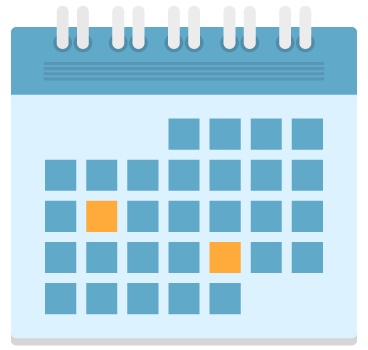Today’s remote work environment and economic uncertainty is impacting businesses and job seekers alike. However, while many industries have made significant reductions to their staffing plans, insurers continue to hire amid the pandemic. Recruiting methods have changed to accommodate physical office closures, and individuals have had to quickly adjust to interviewing over platforms such as Zoom and Skype. If you are currently looking for a new role, here are a few best practices to ensure you’re most effective in the virtual environment.
Adjust your mindset.
First and foremost, acknowledge that job searching in the current environment can be tough. It’s easy to get discouraged as organizations evolve their strategies and shift priorities. Certain processes may take longer than expected and needs may change. It’s important to adjust your mindset to account for the fluctuating state of business. Be accepting of the current situation and recognize your job search will be different than it may have been in the past.
Create a routine.
By creating a routine and planning out what you would like to accomplish each day, you’re able to remove some of the emotion from the process and track tangible progress. If you’re job searching full-time, you may choose to approach it as its own job and implement specific working hours. Or, you can set clear and attainable goals, such as sending out three networking emails, applying to two jobs and scheduling a virtual coffee date with someone in the industry.
 Network.
Network.
As school, travel and personal calendars clear, many professionals are more willing to talk with others and share their experiences and insight. Now is a great time to reach out to individuals in your network to see how they’re doing and reestablish connections. Recognize that everyone is experiencing a time of uncertainty, even those who are gainfully employed. Think about ways you might be able to add value to their current role or professional endeavors. Don’t reach out asking for something; often this will come up organically in conversations.
 Evaluate your skill set.
Evaluate your skill set.
Business has quickly evolved and so have some of the attributes hiring managers look for in candidates. Individuals who are new to a role must be tech savvy, able to operate independently, and prove productive and resourceful in difficult situations. Virtual interviews also set the stage for more objective conversations and decisions. Make sure you have examples and anecdotes of how you’ve demonstrated necessary skills, worked autonomously and proven yourself to be a trustworthy colleague.
Tailor your approach.
Even if you are sending out dozens of resumes, consider how you can express your unique interest for each company. By personalizing your interactions, you’ll show you are driven and resourceful, even before the formal interview process begins. Research each company and if possible, the hiring managers and leadership teams. Check LinkedIn to see if you have any connections in common with the position’s recruiter or other key stakeholders. By putting in the extra effort, you can convey your enthusiasm in a genuine way.
 Accept new timelines.
Accept new timelines.
In today’s environment, it’s possible the hiring process may take longer than it would under traditional circumstances. You may be asked to talk with more individuals than in a typical interview. There may also be additional lag time between updates and next steps, as teams determine how to best move forward. Be patient and understanding, while keeping yourself top of mind by staying in close contact with recruiters and hiring managers.
Make human connections.
As you go through the interview process, acknowledge what is happening. The current environment has blurred the lines between work and personal and it’s OK to be empathetic. Remain professional, but ask how others are doing and don’t be afraid to make a personal connection. Express your appreciation for their time, even if you are not offered the position. These relationships can be valuable later on; if you weren’t right for one specific position, new roles may open up that are more suited to you and it will be helpful to have an existing connection within the company.
 Don’t be afraid to move forward.
Don’t be afraid to move forward.
If you’re excited about a new role, don’t be afraid to accept it. There will always be an element of risk associated with taking on a new position. However, insurance is a fairly stable industry and unemployment is still relatively low. While you may be hesitant to make a move due to current circumstances, think long-term. Where would you like to be in five years and how can the role help you get there?
If you are not selected for a role, don’t take it personally. A hiring manager may have really liked you, but decided someone else was a better fit. Be gracious and keep lines of communication open in case future roles arise. Especially in these unprecedented circumstances, it’s important to give yourself grace throughout the job search process. Focus on building connections, being patient, and making time for other passions and interests outside of work. For more insight on interviewing remotely, view this recent post.